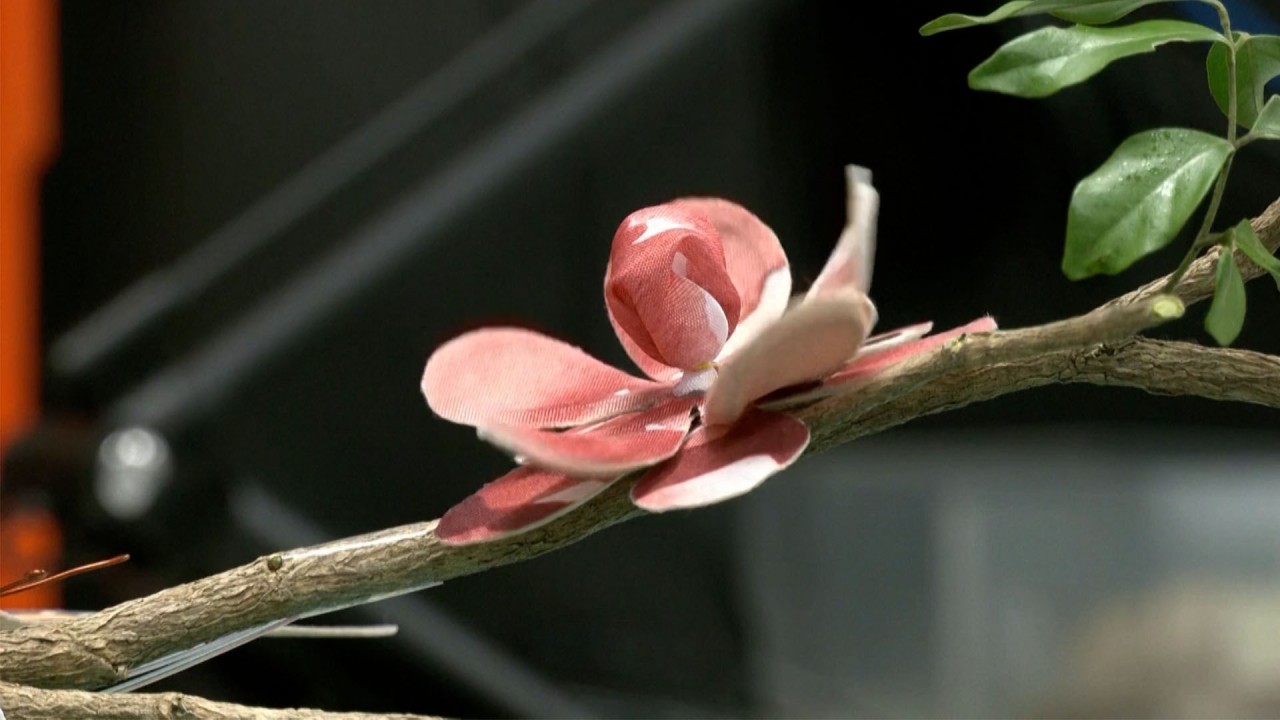
Keel Labs’ seaweed yarn, backed by Hong Kong tycoon Li Ka-shing, can tackle fashion pollution
- Company hopes its product, made from polymer extracted from seaweed, can replace traditional fibres that have high environmental costs
- Billionaire Li’s private investment arm Horizons Ventures and the investment arm of H&M Group are among the company’s investors
Li Ka-shing-backed start-up Keel Labs is spinning yarn from seaweed to transform the textile industry and tackle pollution in the fashion sector’s supply chain.
The North Carolina-based start-up, founded in 2017 by designers Tessa Callaghan, Aleksandra Gosiewski and Aaron Nesser, has developed a yarn from kelp to replace the traditional fibres used in garments and textiles.
“What we were coming to see and realise was that this industry that we know and love, [which] is so integral to our day-to-day lives, is filled with waste, pollution and degradation of our climate,” Callaghan, co-founder and CEO of Keel Labs, said in an interview. “And it weighed on our consciences.”

Some 2,700 litres (713 gallons) of water is required to produce a single cotton T-shirt, enough to sustain one person for 900 days, based on calculations by the World Wide Fund for Nature (WWF).
The fashion industry produces nearly 20 per cent of waste water and about 10 per cent of carbon emissions globally, according to the United Nations Economic Commission for Europe.
Keel Labs’ flagship product, Kelsun, is a seaweed-based yarn created from a polymer that is abundant in kelp.
The kelp used by the start-up can grow up to 18 inches per day and absorbs carbon dioxide at a rate of up to five times faster than land-based plants, according to Keel Labs’ website.
“We’re able to [extract] various polymers from seaweeds, and create proprietary chemistries that turn this polymer into something that is no longer just a wet, juicy, sloppy piece of seaweed,” said Callaghan. “It’s a functional fibre that looks, feels and performs, like the materials that we’re used to.
“The environmental benefits that come from just growing seaweed, from carbon sequestration to water filtration, decreasing ocean acidification, the list goes on.”
A UK start-up with global ambitions to replace plastic with seaweed alternative
The firm, which has 22 full-time employees, is working on expanding and scaling its production capabilities. It hopes to commercialise the product so that it can be integrated in international supply chains including in Asian countries like China where many brands currently source and manufacture clothing and textiles.
“We will certainly be fundraising and looking for additional funding in the coming 18 to 24 months,” said Callaghan.
CK Life Sciences buys 182-hectare Australian vineyard for US$7.3 million
The philanthropic arm of H&M has also backed the Carbon Looper project, which creates garments capturing carbon dioxide from the air and releasing it as nutrition for plants. Developed by the Hong Kong Research Institute of Textiles and Apparel (HKRITA) in 2020, the fabric was piloted for use in aprons worn by staff at Swedish restaurant Fotografiska Stockholm in May 2022.
“Carbon is a major topic in the textiles industry,” Gloria Yao, director of project development at HKRITA, said in an interview on the sidelines of the public research institute’s Innovation and Technology Symposium 2023 on January 17. “The production line of a single piece of clothing is very long and highly energy-, chemical- and material-intensive. Reducing carbon [emissions] throughout the production process will be key to reaching the carbon-neutrality goals that brands have set.
“[Technologies] like these can raise awareness about the pressing issue of the carbon footprint of the textile industry, and the different innovations that can play a part in mitigating carbon dioxide.”


